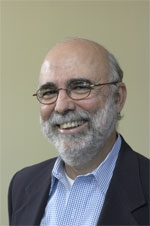
Knight Center offers second massive online infographics course
After the popularity of its first “massive online open course,” or MOOC, the Knight Center for Journalism in the Americas is accepting registrants for a second run of the same course, “Introduction to Infographics and Data Visualization” with Alberto Cairo. The course, which is free and open to anyone anywhere in the world with an Internet connection, will be offered in January and February of 2013.
More than 2,000 people from 109 countries are currently participating in the first journalism MOOC, which runs through Dec. 8. Already, more than 2,000 people from dozens of countries around the world have signed up for the second course, including nearly 1,000 during an advance-registration period to give preference to those who tried to enter the fist MOOC and were not able to because of technical limitations. Server capacity has been increased for the second course.
Cairo, an expert in infographics and data visualization who teaches at the University of Miami. Chapters of his new book, The Functional Art are used in the course. He also uses his Twitter account @AlbertoCairo to complement class discussions. Read more about Cairo and the course here.
The Knight Center for Journalism in the Americas has pioneered the use of digital technologies to train journalists. Since the fall of 2003, it has offered courses and webinars to more than 7,000 journalists from Latin America and the Caribbean. The Knight Center’s e-learning program was especially highly rated in an evaluation study recently conducted by the Knight Foundation: nine in 10 trainees of the Knight Center rated the online classes as good as, or better than, traditional classroom training. The regular e-learning program of the Knight Center is instructor-based and highly interactive, with small groups of students from different countries.
MOOC became a buzzword this year, as most of the largest and most important universities in the United States started adapting regular college courses to offer them in a massive, open online format, reaching thousands of students around the world. Usually MOOCs are not interactive. The Knight Center’s MOOC is different, as professor Alberto Cairo has been giving feedback and stimulating students to give each other grades and comments on course work. Cairo constantly participate in the students’ forums and analyze a limited number of projects.
The MOOC does not give college credit, but the Knight Center may issue a certificate of completion if the students fulfilled all the requirements (quizzes, participation in forums and exercises). A small, nominal administrative fee will be charged for the certificate, but the MOOC is entirely free and open to anyone.
By Rosental C. Alves, Knight Chair in International Journalism
Recent Content
-
Journalismarticle ·
-
Journalismarticle ·
-
Journalismarticle ·


